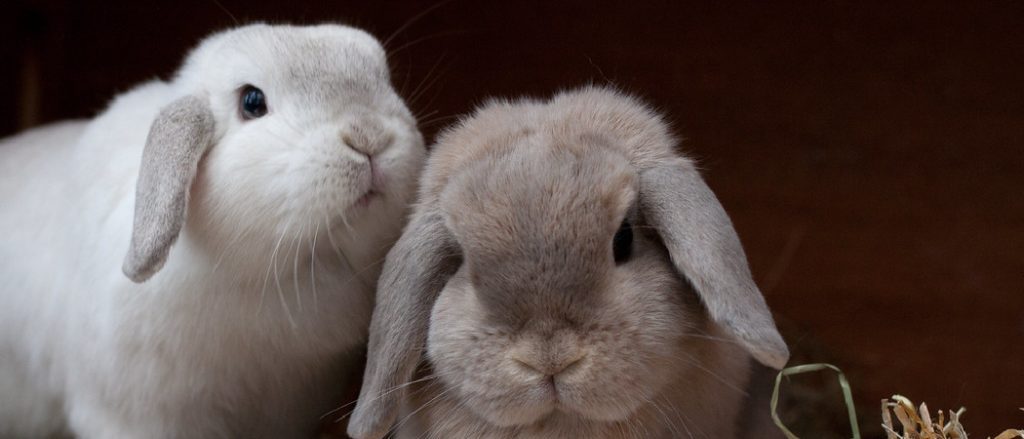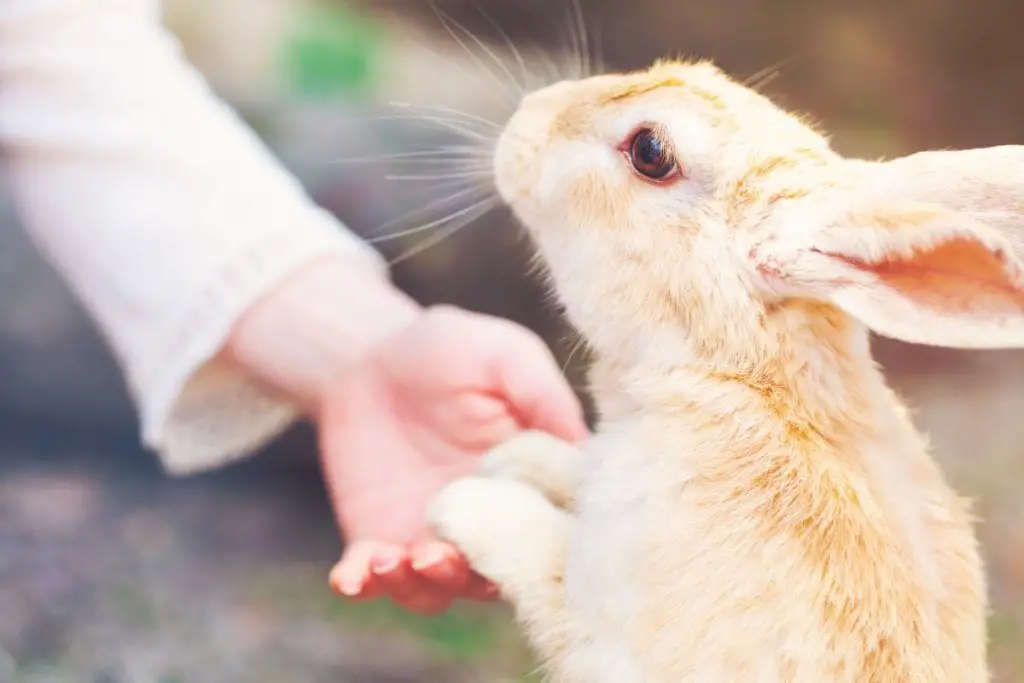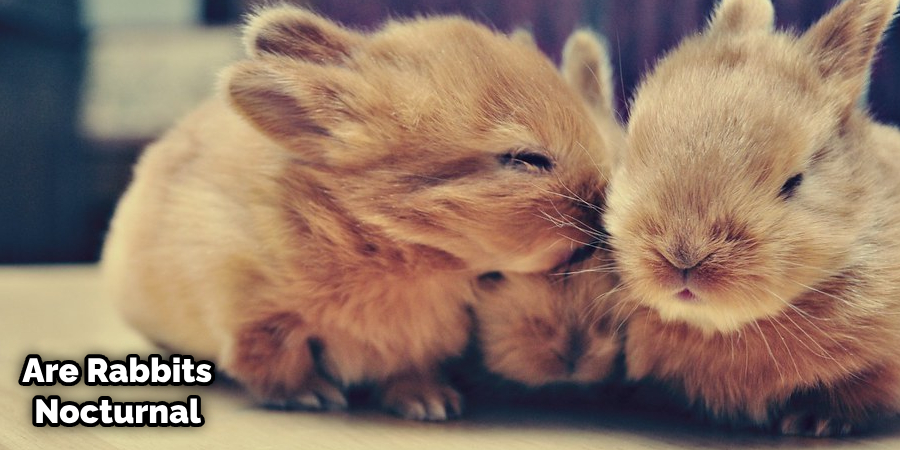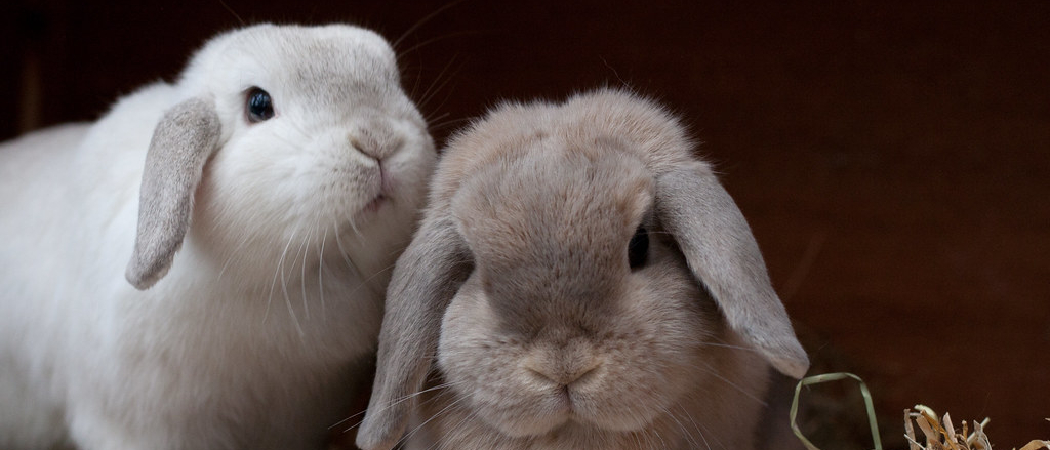Bunnies are so soft because of their fur. Rabbits have two layers of fur, an undercoat, and a topcoat. The undercoat is made up of short and dense fur that helps keep them warm in cold weather.
The topcoat consists of longer guard hairs that provide protection from the elements and predators. Both types of fur are very fine, which makes bunnies extremely soft to the touch. Additionally, rabbits groom themselves regularly with their teeth and tongue, which further contributes to their silky coat by removing debris and distributing natural oils evenly throughout their bodies. In the realm of adorable animals, few creatures can match the irresistible charm of bunnies. Their fluffy bodies, twitching noses, and floppy ears make them universally beloved. One of the most enchanting qualities that bunnies possess is their exceptional softness. Have you ever wondered why bunnies are so soft? Delving into the world of nature and biology, we uncover the secrets behind their velvety fur, exploring the science and wonder that make these creatures the epitome of softness.

Bunnies are known for their incredibly soft fur that makes them irresistible to cuddle. This is because they have a unique type of fur called “down hair,” which consists of short and fine hairs, making it much softer than the normal guard hairs found in other animals. In addition, bunnies often groom themselves by licking their coats and spreading natural oils throughout their fur to keep it extra soft.
Not only does this make them huggable, but it also helps regulate their body temperature in all weather conditions! If you went to know more about why are bunnies so soft, keep reading!
What Your Rabbit’s Sleeping Position Reveals About Their Personality, Health, and Character
The Biological Marvel of Bunny Fur
Bunny fur is a marvel of nature. Each strand of a rabbit’s fur is incredibly fine and delicate, measuring only a few micrometers in diameter. This fine texture creates the illusion of extraordinary softness. Unlike many other animals, rabbits have an undercoat of soft, dense fur that serves as insulation against the cold. This undercoat is made up of downy hairs, aptly named because they are as soft as down feathers. Over the downy layer, rabbits have guard hairs, which are slightly coarser and provide additional protection.
The softness of bunny fur is not just a visual delight; it serves a crucial purpose in their survival. In the wild, bunnies rely on their fur to regulate body temperature, keeping them warm in winter and cool in summer. Their soft fur also helps them stay hidden from predators, as they blend seamlessly into their surroundings, making them less visible to potential threats.
Is Rabbit Fur Soft?
Yes, rabbit fur is incredibly soft and luxurious. Rabbit fur is actually one of the most sought-after materials for luxury clothing items because it has a velvety texture that provides extreme warmth while still being lightweight. The hair follicles on rabbit pelts are so close together that they produce an extremely dense coat which makes them ideal for creating garments like coats, hats, and gloves.
Furthermore, due to its unique structure, rabbit fur can even be used as insulation in winter apparel as it holds heat better than other fabrics, such as wool or synthetic fibers.
Genetics and Softness
The softness of a bunny’s fur is not solely dependent on its external environment but also on its genetics. Different rabbit breeds exhibit varying degrees of softness, with some breeds being naturally softer than others. This genetic variation arises from selective breeding practices over generations.
Breeders have meticulously selected rabbits with exceptionally soft fur and bred them to pass on these desirable traits to their offspring. This careful breeding has led to the development of breeds like the Angora rabbit, known for its incredibly soft, silky fur. Angora rabbits have been bred for their wool-like fur, which is not only soft but also highly prized in the textile industry.
How Does a Rabbit Fur Feel?
Rabbit fur is incredibly soft and silky to the touch. Its texture resembles that of cashmere or velvet; it’s smooth, plush, and velvety. Rabbit fur also has a unique thermal quality due to its airy structure – trapping warm air close to the skin while still allowing for ventilation which helps regulate body temperature.
The coat also provides excellent insulation from cold temperatures as well as some protection against light rain or snowfall. It can also be quite dense, providing warmth without adding bulkiness or weight.
Is Rabbit Fur Harmful to Humans?
No, rabbit fur is not harmful to humans. Rabbit fur does not contain any chemicals or materials that are toxic or irritant to the skin, so it can make a great choice for clothing and accessories. The only issue may be if the animal was exposed to pesticides while alive – in this case, you would need to ensure that your product has been properly washed before wearing it.
In terms of allergies, most people do not experience any reaction when they come into contact with rabbit fur; however, some individuals may develop an allergic response due to proteins found on the surface of the hairs. As always, it’s important to take precautions when handling any animal skin or fur – regular washing and cleaning will help reduce any potential risks associated with these products.
Why are Rabbits So Lovable?
Rabbits are some of the most lovable animals around due to their playful, gentle, and affectionate nature. Rabbits have soft fur that many people find comforting to pet, they enjoy being held and cuddled, and they can even be trained to do tricks! They also bond quickly with humans, making them easy to keep as pets.
Rabbits also make great companions because they are intelligent creatures who thrive on social interaction with both other rabbits and their human owners. Last but not least, rabbits love exploring different environments, so providing toys for them in their enclosure allows them a fun way to express themselves while at home. With all these qualities combined, it’s no surprise why rabbits are such popular pets!

Credit: rabbitinformer.com
Why are Bunnies So Cute?
Bunnies are one of the cutest animals in the world, and their adorable looks have turned them into cultural icons. From their fluffy fur to their twitching noses and big ears, bunnies have an irresistibly cute appearance that makes us want to cuddle with them all day long. But it’s not just about how they look – bunnies also possess endearing behaviors that add to their appeal.
They like to hop around playfully, groom each other for hours on end, and make little squeaky noises when excited or scared. All these attributes contribute to why everyone loves bunnies so much!
Why are Bunnies So Expensive?
Bunnies are an increasingly popular pet choice, but they can be quite expensive. This is due to the fact that rabbits require special diets and care, as well as regular grooming and vet visits. They also need a larger living space than other small pets, such as hamsters and guinea pigs, which drives up their price tag even further.
Additionally, bunnies have relatively short life spans of around 8-10 years, so owners should be prepared for the long haul when considering them as a pet option.
Bunny As a Pet
Bunnies make great pets, as they are relatively low-maintenance and can provide companionship to their owners. They require regular fresh hay, a healthy diet of pellets and leafy greens, plenty of exercise time outside of their cage, and lots of love and attention! Bunnies also live for 8-12 years on average, so potential pet parents should be prepared to commit to the long-term care of a bunny before bringing one home.
Facts About Rabbits
Rabbits are small mammals that come from the same family as hares and pikas. They have incredibly powerful hind legs, which they use for quick bursts of speed, along with long ears and furry bodies. Rabbits typically live between 8-12 years old in captivity but can reach up to 10 years in the wild.
They are herbivores, meaning their diet consists mainly of grasses, hay, vegetables, and other plants.
How to Take Care of a Rabbit?
Rabbits are delightful pets that require special care in order to stay healthy. In addition to providing your rabbit with a comfortable and spacious home, it is important to feed them a balanced diet of hay, vegetables, and fresh fruits, as well as clean water. Regular grooming is also necessary for their good health; brushing will help keep their coat soft and free from tangles.
Furthermore, regular exercise should also be part of your rabbit’s routine; provide them with large open spaces where they can run around freely or build an outdoor enclosure if you have the space. Finally, ensure that all toys or objects used by your bunny are pet-safe so they do not pose any harm to your furry friend!
Are Rabbits Nocturnal

No, rabbits are not nocturnal. In fact, they are crepuscular animals, meaning they are most active during the twilight hours of dawn and dusk. During the day, rabbits typically sleep in their burrows or sheltered areas but remain alert for predators.
At night, rabbits will stay awake to eat and groom themselves but do not engage in any large-scale activities as they would during the day.
Rabbit Fur
Rabbit fur is a popular material used in many garments, such as coats and hats. Rabbit fur is known for its warmth, lightweight, and soft texture. It’s also highly sought after because it can be dyed to create beautiful colors and patterns.
Additionally, rabbit fur has natural oils that help repel water and dirt so the garment stays looking new longer.
Conclusion
In conclusion, bunnies are some of the softest animals in the world due to their fur being made up of two layers. The top layer helps to protect them from predators and harsh weather conditions, while the bottom layer is made up of downy hair that keeps them warm and makes them appear extra cuddly. As a result, it’s no surprise why these adorable creatures have become popular pets for families around the globe! Thank you for reading our post about why are bunnies so soft. In the enchanting world of bunnies, softness is more than just a physical attribute—it’s a testament to the wonders of nature, genetics, and evolution. Their incredibly fine fur, intricate composition, grooming habits, and the emotional impact they have on humans all contribute to the enigma of their softness. Whether you’re a bunny enthusiast, a biologist, or simply someone who appreciates the delightful softness of these creatures, exploring the secrets behind why bunnies are so soft reveals the intricate beauty of the natural world. So, the next time you run your fingers through a bunny’s fur, remember that you’re not just touching fluff; you’re experiencing a masterpiece of evolution, a testament to the awe-inspiring complexity of life on Earth.


